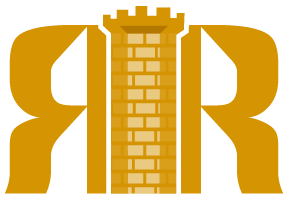Preschool Child Find
Preschool classes are taught by Birth-Kindergarten certified teachers along with 1 or 2 teacher assistants. The Individual Education Program (IEP) teams determine the placement, frequency, and duration of services based on goals designed to meet each child’s unique needs.
REFERRAL FOR AN EVALUATION FOR A PRESCHOOL CHILD
If you are a parent, physician, or childcare teacher and have concerns about the speech and/or overall development of a preschool-aged child and would like to make a referral for an exceptional children's evaluation, please call Shelley Williams at 252-519-7700 or email at williamss.ch@rrgsd.org You will need to provide information on the child's physical, motor, educational, communication, behavioral, and daily living skills in a phone interview. An observation and/or referral meeting will be scheduled shortly after the phone interview.
If you are a parent of a preschool-aged child with an IEP who has recently moved into Roanoke Rapids Graded School District, please call Shelley Williams at 252-519-7700 or email at williamss.ch@rrgsd.orgto schedule a meeting to determine comparable services and review the IEP. You will need to provide a copy of your child's IEP prior to the meeting.
REFERRAL AND ASSESSMENT PROCESS
Referral and Intake Meeting
At this meeting, the parent(s) and the child meet with a team of professionals (assessment team) from the EC PreK program. This team may consist of an LEA representative, a special and regular education preschool teacher(s), a school psychologist, a speech pathologist, an occupational therapist, and a physical therapist. Referral paperwork will be completed which includes the strengths and needs of the child and the reason for the referral. Team members may conduct observations and possible screenings as well as review any previous evaluation results to decide if further evaluations are needed to determine eligibility. Evaluation information may be required in five areas of development in order to determine eligibility: cognitive, social, motor, adaptive, and communication. The assessment team must also have a hearing and vision screening that has been passed within one year of the referral. Hearing and vision screenings may be conducted during this meeting. If the team decides that more testing information is needed, a decision will be made as to what type of assessment is necessary and how it will be conducted (traditional testing or play-based assessment). Appointments will be scheduled with parents to complete any recommended testing. If the team decides no additional testing is needed, the team will either complete the final work at that time or schedule an eligibility meeting prior to the child’s third birthday. The child is required to attend this meeting, which will last about one (1) hour. A copy of the child’s birth certificate and immunization records is required. Parents must also provide 2 proofs of residence at the initial referral meeting. This documentation must show the parent’s name and current home address (driver’s license, utility bill, rental agreement, etc).Multidisciplinary Assessments for Preschoolers
Multidisciplinary teams typically consist of a preschool teacher, a speech-language pathologist, a psychologist, and, when needed, an occupational therapist and/or physical therapist. Parents will be asked to fill out background medical and developmental information on their child as well as provide information on adaptive and social skills. There are two different types of assessments that can be conducted with preschoolers. One type is a “traditional” or “standardized” assessment where one of the assessment team professionals will work with the child in a structured setting. The other type of assessment is called a “play-based” assessment or Transdisciplinary Play-Based Assessment (TPBA). This is conducted by the assessment team by observing the child playing in an environment that is set up like a small preschool classroom. There will be a play facilitator who will encourage and elicit certain play and pre-academic skills from the child while the observers record and interpret information. Assessments typically take about 1.5 hours with the parents present. The child is required to attend all testing appointments.Eligibility Meeting
After assessments/evaluations are completed, an eligibility meeting will be scheduled to discuss the results, and determine eligibility for services and possible placement opportunities for intervention services. If a child is eligible for services with the EC PreK program, an Individualized Education Plan (IEP) will be developed. The type and frequency of intervention services recommended are dependent upon the goals developed on the IEP and the needs of the child. This meeting will last 1-2 hours. The child is not required to attend this meeting.
